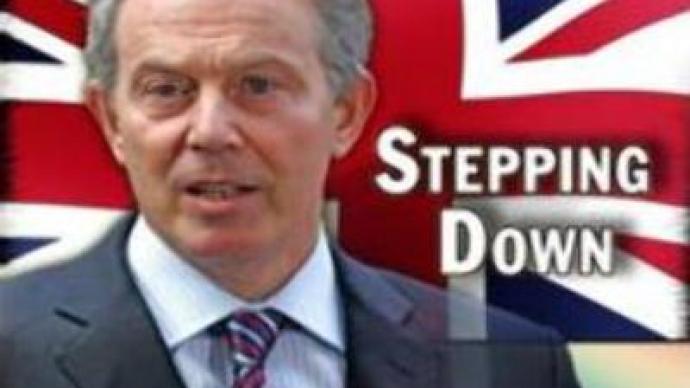Tony Blair to resign

British Prime Minister Tony Blair has confirmed he will step down from his post. In a speech at his constituency in the north of England, he told supporters he is resigning as head of the Labour party with immediate effect.
His resignation as Prime Minister will follow on June 27. “I’ve come back here to Sedgefield, to my constituency, where my political journey began and where it’s fitting that it should end. Today I announce my decision to step down from the leadership of the Labour party. The party will now select a new leader. On June 27 I will tender my resignation from the office of Prime Minister to the Queen. I’ve been Prime Minister of this country for just over 10 years. In this job in the world of today, I think, that’s long enough for me, but more especially for the country. And sometimes the only way you conquer the pull of power is to set it down,” Tony Blair announced. Tony Blair began office over ten years ago, pledging his allegiance to America and Europe and trying to bring the two continents closer together.When he came to power, Mr Blair was quick to embrace Russia, becoming the first Western leader to meet then-acting President Vladimir Putin. However, relations between the nations have changed. Today the British media says they have reached the lowest of point since the end of the Cold War.Sir Roderic Lyne, former British Ambassador to Russia says, “I think there have been tensions between Russia and its Western partners, and also very specific to Britain over the presence in this country of the Chechen representative Zakayev who was not extradited by British court. But that was a judicial decision, it wasn’t the decision by Tony Blair. Nevertheless, it did quite a lot of harm to our relations as has the presence in this town of Boris Berezovsky, who was not invited here by the British Government. Again – nothing to do with Tony Blair, but that has undoubtedly been one of the facts that caused trouble”.A decade ago Mr Blair seemed to want Britain to be a bridge between Washington and Europe. But ultimately he stuck by the United States and joined the War in Iraq – the decision some call his fatal mistake, and probably the one thing history will remember him for. At home Tony Blair’s record has been mixed. The introduction of the minimum wage and a strong economy were the high points, but reforms to the health service and school system are still highly criticised. Brian Jenkins, Labour Member of Parliament says, “It’s almost like a divorce where the bitterness of the divorce is much greater at the end. I think there is a bit of that in the public perception”. However, “Peace in Northern Ireland,for instance, after four decades of conflict with 3,500 deaths is a remarkable achievement for any prime minister,” Mr Jenkins added.Many in Britain say that Tony Blair will always be seen as someone who, in his own words, was trying to modernise Britain. The country has indeed changed a lot in the past ten years. But whether it was purely Tony Blair’s doing or something that would have happened anyway is for historians to judge.
You can share this story on social media:












